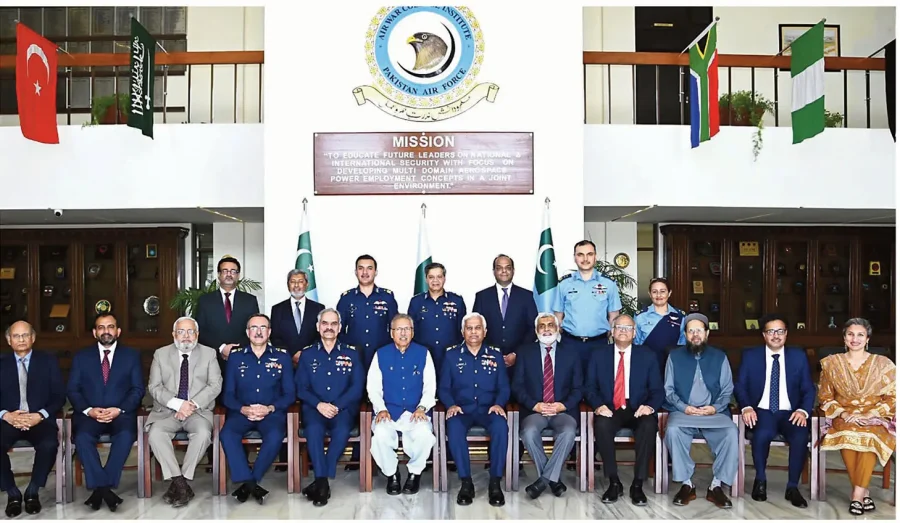President Dr Arif Alvi on Tuesday urged the universities to further improve the standard of education and training to produce high-quality and skilled graduates, especially in the field of Information Technology. IT and emerging technologies had great scope and potential, and universities needed to produce more graduates in the fields by utilising online and hybrid modes of learning, he said while chairing the first meeting of the Senate of Pakistan Air Force Air War College Institute (AWCI), Karachi.
The president stressed the need of making fast decisions to keep pace with the latest trends and developments in the world and said Pakistan must invest in the intellectual development of its human resources which was vital for its socio-economic development. Pakistan, he said, must bring 22 million out-of-school children to schools, besides improving the enrolment rate in higher educational institutions. Only 9% of the students in the country went to universities after intermediate, whereas in India and Bangladesh the enrolment rate was between 20-25%.
The president said Pakistan only produced 35,000 graduates in IT and related fields every year which was not adequate to meet the needs of the market. Pakistan must improve the number of graduates in IT and related disciplines to keep pace with the rest of the world, he added and urged the universities to utilise their physical infrastructure efficiently and introduce multiple shifts in universities, besides increasing the quantum of online education to increase the number of students.
Dr Alvi highlighted that 52% of cyber security experts in the world had no degrees and they equipped themselves with skills through online education. He said Pakistan had introduced an online programme ‘digiskills’ for skill development of youth in the field of IT, which was a great success as over 2.5 million people had benefited from it so far.
During the meeting, it was agreed that avenues for online education would be explored with time as the traditional brick-and-mortar system could not produce the required number of graduates.
The Higher Education Commission’s representative informed the meeting that in Karachi, almost 70,000 students passed the FSc examination while only 8,000 were able to secure admission to higher education institutions due to the shortage of seats and limited physical resources.
The Annual Report of the AWCI was also presented in the meeting.






